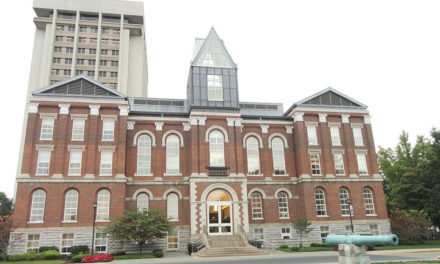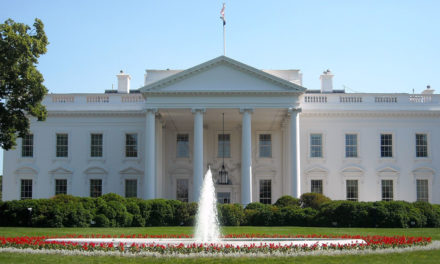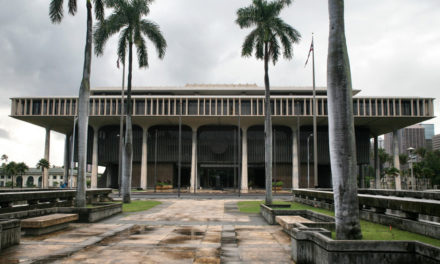When Denver-area baker Jack Phillips won his religious discrimination case against the state of Colorado at the U.S. Supreme Court in 2018 after declining to create a wedding cake for a same-sex “marriage,” the justices decided in his favor on the basis of the religious hostility exhibited by particular state officials toward his religious beliefs about marriage. The court avoided the even weightier questions of free speech that lay at the heart of the case.
Now, four years later, another creative artist is challenging the same Colorado nondiscrimination statute that ensnared Jack Phillips – as well as other wedding professionals in other states dealing with similar statutes – for compelling Christian businesspeople to express messages contrary to their faith.
Lorie Smith is the owner of 303 Creative LLC, a Denver-area graphic design and wedding website where Lorie hopes to celebrate marriages and bring her Christian faith to bear on the creative work she does in blogging about and building memories for the couples that hire her.
While she doesn’t discriminate against any customer because of who they are, she does desire to limit her wedding business to opposite-sex couples because of her Christian beliefs about marriage, and that’s something that Colorado law does not permit.
Smith’s courageous legal efforts to fight the Colorado Anti-Discrimination Act (CADA) and operate her business in accordance with her faith have not gone well to date. When she sued the state in 2019 to have the law declared unconstitutional, she lost in federal district court and again at the 10th U.S. Circuit Court of Appeals.
That didn’t discourage Smith, to her credit.
Lorie appealed the 10th Circuit’s decision to the U.S. Supreme Court, which on February 22 announced it would hear her case. The news is encouraging for those who value religious freedom, free speech, and the right of creative professionals to be free from government-compelled ideology.
Given the current conservative leanings of the high court and its recent decisions affirming religious freedom, this case is setting up to be an important one. It may prove to be the perfect opportunity for the high court to finally vindicate the free speech rights of Christian creative professionals whose chosen messages do not conform to the politically mandated ideology of the local governments where they operate.
“Lorie Smith is an artist and website designer who creates original content consistent with her faith,” her petition to the Supreme Court explains. “She plans to expand her business to design wedding websites that promote her understanding of marriage as between one man and one woman, and she would like to post an online statement explaining she can only speak messages that are consistent with her religious convictions. But Colorado’s Anti-Discrimination Act (CADA) requires her to create websites celebrating same-sex marriage and bans her explanatory statement—even though Colorado officials stipulate that she works with anyone, regardless of sexual orientation.”
The federal district court and the 10th Circuit, however, ruled that the state can force her to use her skills to celebrate same-sex marriages, and that CADA justifiably prohibits her from advertising her religious convictions about marriage. Alarmingly, the 10th Circuit said that CADA permits secular artists to refuse work based on a particular message requested by the client, but the statute does not apply to Lorie’s convictions about representing only opposite-sex marriages.
Chief Judge Timothy Tymkovich, the dissenting judge in that 2-1 10th Circuit opinion called his colleagues’ dystopian view of Colorado’s restrictions on free speech “Orwellian diktat.”
“No one denies Lorie Smith’s sincere religious beliefs, good faith, and her willingness to serve clients regardless of race, creed, ethnicity, or sexual orientation,” Tymkovich wrote. “But what she will not do is compromise her beliefs and produce a message at odds with them. The Constitution neither forces Ms. Smith to compromise her beliefs nor condones the government doing so. In fact, this case illustrates exactly why we have a First Amendment. Properly applied, the Constitution protects Ms. Smith from the government telling her what to say or do.”
Smith’s attorneys with Alliance Defending Freedom agree with Chief Judge Tymkovich.
“The government doesn’t have the power to silence or compel creative expression under the threat of punishment. It’s shocking that the 10th Circuit would permit Colorado to punish artists whose speech isn’t in line with state-approved ideology,” said ADF General Counsel Kristen Waggoner in a press release. “Colorado has weaponized its law to silence speech it disagrees with, to compel speech it approves of, and to punish anyone who dares to dissent. Colorado’s law—and others like it—are a clear and present danger to every American’s constitutionally protected freedoms and the very existence of a diverse and free nation.”
Lorie Smith’s situation is not unique, unfortunately. Here’s how ADF explained the impact of laws such as Colorado’s on other Christian businesspeople around the country in a brief urging the justices to accept this case:
“The First Amendment’s promises of free speech and religious liberty are bedrock principles. Yet over the past decade, those promises have been shattered: Elane Photography and Sweet Cakes are out of business, Barronelle Stutzman was forced to retire, Emilee Carpenter is risking jail, Bob Updegrove and Chelsey Nelson are in harm’s way, and Jack Phillips is still in court, pursued by a private enforcer who wants to finish the job. This Court must act now or officials with enforcement power over nearly half the country’s citizens will continue compelling artists to speak against their consciences while silencing them from explaining their beliefs.”
No oral arguments have been scheduled at this point, but those won’t occur until the next term of the Supreme Court that begins in October. Because of the important issues in this case, we likely won’t see a decision in this case until perhaps June 2023.
The case is 303 Creative LLC v. Elenis.
Photo from ADF.






